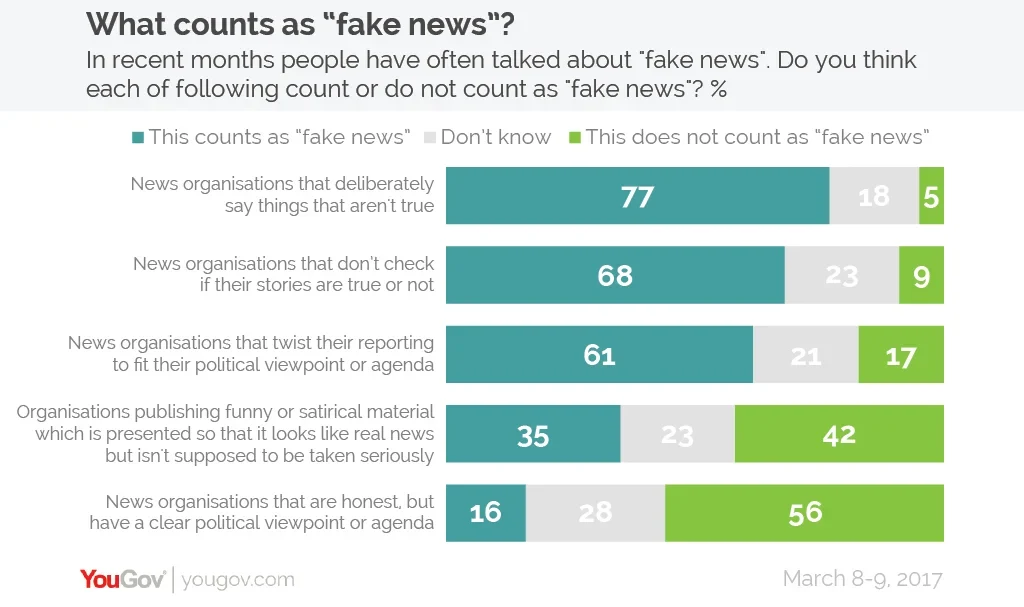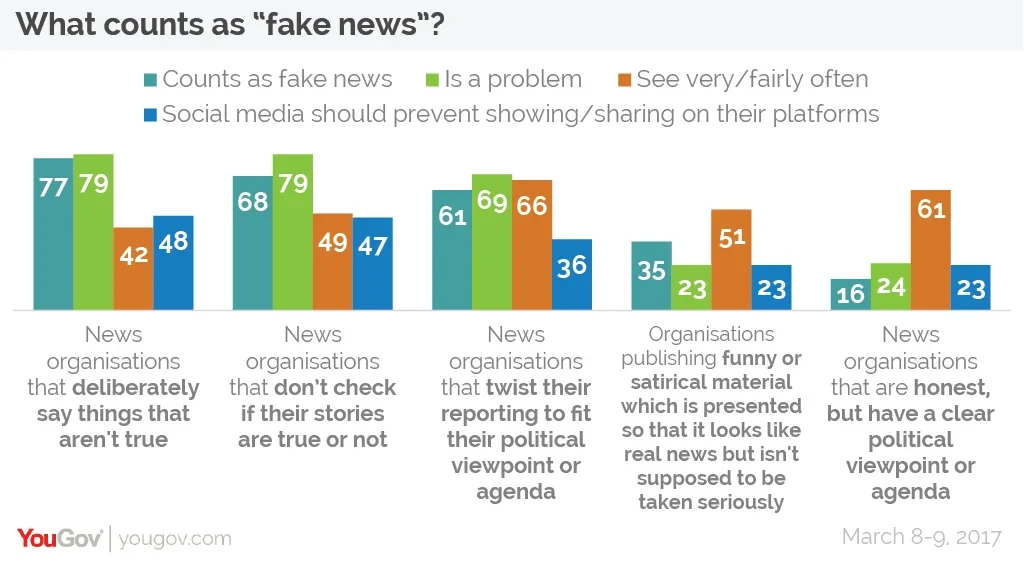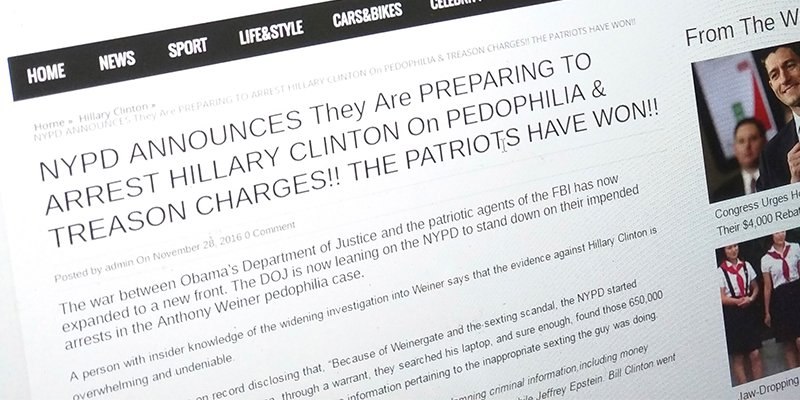New YouGov research discovers what Britons believe to be fake news, how often they see it and what should be done about it
“Fake news” may well be one of the key political phenomena of our time. A study by Forbes shows that the term was virtually non-existent among US broadcasters until the autumn of 2016 when Facebook CEO Mark Zuckerberg used it whilst denying that the spread of such content on Facebook had tipped the US presidential election in Donald Trump’s favour. Usage of the term receded again until Donald Trump accused CNN of publishing “fake news” about him, and the term has subsequently stuck.
Whilst much has been written by the press about the phenomena, it is less clear what the general public think constitutes “fake news.” Now new YouGov research looks at what Britons think the term encompasses, how often they see it and what should be done about it.
First, it is bad news for the satirical sites like The Onion or the Daily Mash. Around a third (35%) of Brits believe that organisations publishing funny or satirical material that is not supposed to be taken seriously yet is presented like real news counts as “fake news.” In fact, approaching a quarter (23%) of people believe that satirical outlets are “a problem”, and the same proportion would like social media sites to avoid showing such stories and prevent users from sharing them.
Secondly, despite being the definition of the term, only around three quarters (77%) of people believe that news organisations deliberately saying things that aren’t true constitutes “fake news”. Approaching a fifth of Brits don’t know whether it does or not, whilst 5% think it doesn’t.

Additionally, the research finds that high numbers also believe the term applies to news organisations not checking if their stories are true or not (68%) or twisting their reporting to fit their political viewpoint or agenda (61%). Yet while just one in six (16%) think a current affairs outlet being honest but having a clear political viewpoint or agenda constitutes “fake news”, a quarter (24%) believe such news organisations to be “a problem.”
The biggest problems are seen to be news organisations deliberately saying untrue things or running stories without checking the facts (79%), whilst twisting reporting to fit a certain political viewpoint or agenda is seen as nearly as big an issue (69%).

The research suggests that a lot of Britons feel as though “fake news” in all its guises is already widespread. Two thirds (66%) think they regularly see news organisations twisting their reporting and six in ten (61%) say they frequently see honest reporting with a clear viewpoint or agenda. Although less well-noticed, the more serious categories of fake news – unchecked or downright fictitious stories – are still seen regularly by 49% and 42% of people respectively.
Where does responsibility lie?
Despite social media sites in general – and Facebook in particular – having been blamed for facilitating the spread of fake news, more than half of people (52%) lay the matter squarely at the feet of news organisations, compared to just 5% who blamed social media sites.
That being said, Brits believe such sites do bear some of the burden. Around two thirds say social media sites have a responsibility to make sure that only true news stories are displayed or shared on their platforms.
Yet people are reticent to say that “fake news” content should be blocked from social media outlets. For instance, whilst 77% of people thought that news organisations generating deliberately untrue content constitutes “fake news”, and 79% say this is a problem, less than half (48%) reckon social media companies should block such content from their platforms.
Photo: PA










